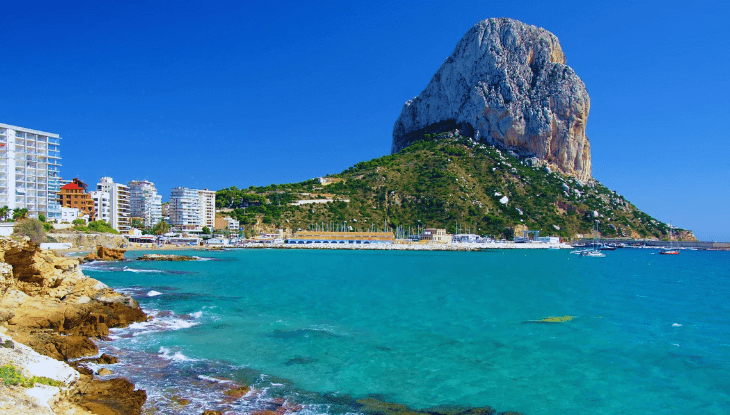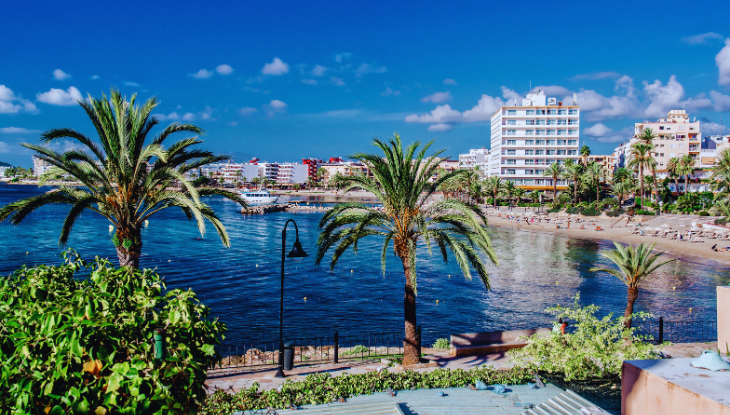When considering buying property abroad, many wonder How to buy a property in Spain. This country offers not only beautiful weather and rich culture but also attractive investment opportunities.
If you dream of having your own place in one of the Spanish cities or on the coast, this guide is for you. It contains all the key information that will help you understand the process of buying a property in Spain.
How to buy a property in Spain?
In Spain, the dream of having one’s own place is quite common – about 80% of the population owns their apartment or house, with many of them not burdened with a mortgage anymore. The country experienced serious difficulties during the global financial crisis, which had a significant impact on the real estate market. House prices even fell by 30%, but the last few years have brought stabilization.
Since 2016, we have observed a gradual increase in property prices in Spain. Although the COVID-19 pandemic affected the market in 2020, official data show that average property prices increased in the second quarter of that year. Sale prices increased by 2.1% compared to the previous year, with new building prices rising by 4.2%, and second-hand apartments by 1.8%.
It is understandable that the number of buy-sell transactions significantly decreased. Government statistics indicate that international buyers purchase about 18,000–25,000 homes in Spain every quarter. In the second quarter of 2020, this number dropped below 10,000.
The full economic effects of the COVID-19 pandemic on the Spanish real estate market are still unknown. Real estate market experts predict that home values could fall by 5–10% in the short term.
Better to buy or rent property in Spain?
Deciding between buying or renting a property in Spain requires understanding the local market realities. It’s important to consider the risk of scams, high capital gains taxes, and property price volatility.
The rental market is also changing, especially after some regions introduced stricter regulations for short-term rentals. These rules, varying by region, can affect investment decisions.
Considering these factors, renting might prove to be more beneficial for those planning a shorter stay in Spain. Especially in the face of high capital gains taxes.

Can foreigners buy a property in Spain?
Spain opens its doors to foreigners wanting to buy property, making the purchase process relatively simple and limiting the possibility of making typical mistakes when buying a house. The purchase rules are transparent.
Before proceeding with the transaction, it is necessary to obtain a financial number, which can be received by visiting the police station with a passport in hand. For citizens of Spain and European Union countries, this process is usually completed the same day. However, for people from other countries, it may take several weeks.
Spain also offers a Golden Visa program for foreign property owners. Under this program, investing more than 500,000 euros in Spanish properties can obtain a residency visa. The Golden Visa program is highly popular, especially among investors from outside the European Union, including retirees and people buying holiday homes.
How to buy a property in Spain step by step?
Buying property in Spain starts with determining the budget, depending on the purpose of the purchase: apartment for living, holiday home, or investment. It’s important to check borrowing capacity and determine the amount you can afford. The next step is to obtain the NIE identification number, essential for tax registration and opening a bank account in Spain, as well as finding an experienced lawyer specializing in real estate law.
After choosing the dream property, you should make an offer. Then, after its acceptance, draw up a reservation agreement Contrato de Reserva. This allows for the performance of due diligence checks concerning debts and the legality of documents. At this time, a deposit is also paid, secured until the completion of checks. It’s also recommended to conduct a technical inspection of the property.
The finalization of the purchase includes signing a preliminary agreement, paying a deposit, and ultimately, signing the Escritura de compraventa agreement with the seller, which concludes the purchase process. It’s necessary to pay the remaining amount and fees, and the lawyer will register the sale in Notaria Publica.

Costs of buying property in Spain
When planning to buy property in Spain, it’s worth noting that prices significantly vary depending on the location. In large cities like Madrid or Barcelona and in popular tourist coastal regions, prices are higher. However, the market offers a wide selection of properties, allowing you to find options tailored to various budgets.
The average prices in the centers of large cities ranged from about 427.75 to 474.22 USD per square meter. Whereas outside the center, offers can be found from 143.06 to 338.89 USD per square meter. This shows a significant variation and opportunities to tailor the purchase to individual preferences.
An analysis of the market before the COVID-19 pandemic revealed an increase in property prices, with average values reaching 1,649 euros per square meter in major cities and 1,604 euros in the Balearic and Canary Islands. The most expensive areas, such as San Sebastian, Barcelona, and Madrid, presented prices up to 3,600 euros per square meter.
How to find and choose a property in Spain?
Choosing the right property in Spain can take various forms. You can use the services of real estate agencies, buy directly from the owner through an online portal, or look for listings and recommendations in selected neighborhoods. Working with a real estate agency often involves fees on the seller’s side, which range from 2.5 to 3% of the property’s value. For first-time buyers in Spain.
The support of a specialized broker can be invaluable, though it’s important to remember the additional costs for such a service. Websites like Idealista or Fotocasa can be a good starting point for independent searches.
Choosing between a residential or investment property depends on individual needs. Spain offers a wide selection of apartments, houses, or plots for construction. It’s important to carefully consider whether the property will serve as a home or an investment. Nothing replaces direct visits and conversations with residents to better feel the area and find the perfect place for yourself.
However, caution should be exercised to avoid pitfalls such as scams related to properties sold off-plan that are not realized, or homes built illegally.
What are the legal requirements?
The notary plays a key role in the buying-selling transactions of homes in Spain. They are responsible for entering the transfer of property ownership into the land registry (Registro de las Propiedades).
Checking whether the seller is the actual owner of the property and whether the property is free of any debts is especially important in Spain, where debts assigned to the property are transferred to the new owner. If the property is burdened with an unpaid mortgage of the previous owner, the new buyer may be charged with its repayment.
Buying property is an important and exciting step, but navigating the legal system of a new country can be a challenge. Fortunately, purchasing your dream home in Spain should proceed relatively smoothly if you follow the steps listed.
FAQ – Questions & Answers – How to buy a property in Spain?
Yes, foreigners can buy property in Spain. The buying process is similar for Spanish citizens and foreigners, but it is important to have an NIE (Foreigner Identification Number).
The main stages of purchasing real estate are: obtaining a NIE number, selecting a property, conducting due diligence, signing a preliminary contract, paying a deposit. Finally, signing the notarial deed and registering the transaction in the land registry.
The purchase price should be increased by the tax on the purchase-sale transaction, notary fees, registration costs in the land register. As well as fees for a lawyer and intermediary. The total additional costs may range from 8% to 12% of the purchase price.
While it is possible, hiring an experienced real estate lawyer is recommended. It is worth ensuring that all legal aspects of the transaction are properly taken care of, which minimises risk and protects the buyer’s interests.
Purchasing real estate does not automatically grant the right to residency. However, investors who spend at least 500,000 euros on real estate can apply for the so-called Golden Visa, which allows residency in Spain.

